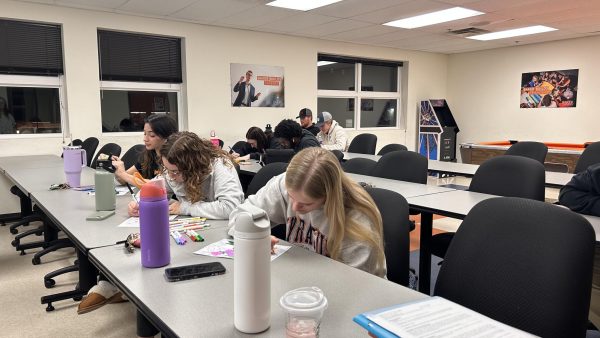Baker strives to abide by Title IX
This article was originally published prior to June 2, 2013. Due to a change in the content management systems, the initial publication date in not available.
Women often occupy secondary positions in the workplace and especially in the sports industry, however President Barack Obama hopes to change this.
Enacted in 1972, Title IX addresses the inequality issue in education and, more recognizably, in sports. Obama intends to see that the law is carried out fully, from pre-kindergarten to graduate school.
“The (collegiate) schools that are more greatly impacted are schools that are state and federally funded. Private institutions have a little different scenario,” athletic director Dan Harris said.
Whereas colleges such as the University of Kansas and Kansas State University must comply with Title IX at the risk of losing their funding, Baker University and other private schools face different repercussions if they fail to meet the set standards, Harris said.
“What we do is comply in the spirit of federal mandates, and we do need to work toward those goals,” Harris said. “Because the consequences would be our students would be denied access to federal loans if we didn’t come close to meeting the guidelines by the (Equity in Athletics Disclosure Act).”
On the Baker athletic Web site, nine sports are displayed under the men’s and women’s headings, respectively. In addition to an equivalent number of sports, Wildcat athletic programs offer similar opportunities for team travel, uniforms and practice and game times, assistant athletic director Theresa Yetmar said.
The biggest obstacle may not be in offering an equal number of programs, though.
“If you think about some of the larger schools, they always struggle to be in compliance because a lot of public institutions like a KU or a K-State support football,” Yetmar said.
“There’s no comparable female athletic sport that fields as many players as football does, but football and basketball programs tend to be their revenue-generating sports which help support all the Olympic sports, so it’s kind of hard to say what kind of impact it will have because those schools, in my mind, will continue to support football.”
Yetmar believes no single female sport can balance a school’s gender ratio in athletics due to the sheer size of a school’s football roster, which easily tops 100, even at a small institution such as Baker.
In early November, ESPN.com’s Lester Munson speculated that Obama’s steadfast support of Title IX might cause worry among coaches of “so-called minor sports, such as wrestling” because they could be at risk of having their programs cut to meet gender requirements.
Another possibility is that roster cuts could be made to achieve balance.
“At the college level, I think it’s acceptable to have restricted rosters,” freshman Blake Stanwood, who throws for the track and field program, said. “At the high school level, I think they should be able to choose.”
Baker’s current budget constraints should not have much effect on the athletic department, as it is “pretty balanced” in monetary gains and cuts. While any crackdown in Title IX enforcement should have little effect on Baker.
A more dire issue, Harris said, is that of the salary gap between coaches. Those coaching men’s sports have traditionally made more money than coaches attached to women’s programs.
“It’s really very difficult to (overcome) because what it means is that you’ve got to make a humongous, high-percentage job on the women’s side to balance out with the men,” Harris said.
Most people view Title IX issues only in regards to student athletes, but other problems such as wage disparity between coaches are still waiting to be addressed by Obama.











